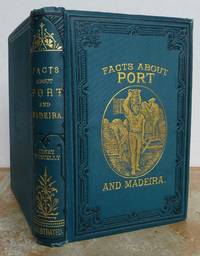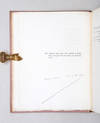
The Original Memo, Prepared by Citizen Genet at the Direct Request of Thomas Jefferson, Presented to President Washington, In One of America's First Major Foreign Policy Crises: This memo, Genet's own retained copy, sought to support Jefferson against the more bellicose position of Hamilton, who favored armed intervention
- Used
- Signed
- Condition
- See description
- Seller
-
Ardmore, Pennsylvania, United States
Payment Methods Accepted
About This Item
Following the execution of King Louis XVI and Marie Antoinette in January 1793, the French revolutionary government found itself at war with Spain, the Netherlands and Great Britain. It dispatched Edmond Charles Genêt as minister to the United States, for the purpose of enlisting American assistance to the fullest extent possible. Genêt arrived in Charleston, South Carolina on April 8, 1793 – calling himself “Citizen Genêt” to emphasize the revolutionary title. He received a warm welcome and immediately began to issue privateering commissions that authorized the bearers, regardless of their country of origin, to seize British merchant ships and their cargo for personal profit, all with the approval and protection of the French Government. President Washington saw this as a dangerous attempt to draw the new United States into a European war and, on April 22, issued his Proclamation of Neutrality, declaring the U.S. a neutral nation in the conflict and threatening legal proceedings against any American providing assistance to the warring countries. Genet then proceeded to the capital at Philadelphia and was met with acclaim and jubilation everywhere he went, as many Americans supported the French Revolution’s goals of liberty, equality, fraternity. He was officially received by Washington on the afternoon of May 18th, but Secretary of State Thomas Jefferson soon informed him that the United States considered the outfitting of French privateers in American ports to be a violation of the U.S. policy of neutrality. Genet ignored this warning, and in fact threatened to take his case directly to the American people, bypassing official government opposition. Genêt was thus willing to challenge Washington and risk being seen as a foreign meddler in American domestic affairs.
Sometime in the spring of 1793, the French frigate Embuscade commandeered the British vessel Little Sarah and dragged it into Philadelphia. The ship was there outfitted as a French privateer and renamed La Petite Démocrate. On June 22nd, the Washington administration began to investigate the disturbing claims coming from the nation's capitol. There was talk of sending an armed brigade from the state of Pennsylvania to confront Genet. Secretary of State Thomas Jefferson visited Genet in an attempt to secure his promise that the vessel would not leave Philadelphia before the President’s return. According to Jefferson’s account of the meeting, Genet “said he should not be justified in detaining her. I told him it would be considered a very serious offence indeed if she should go away; that the government was determined on that point, and, thinking it was right, would go through with it. After some hesitation he said he could not make any promise, it would be out of his duty, but that he was very happy in being able to inform me, that the vessel was not in readiness, and therefore could not sail that day.… And whenever I tried to fix it to the President’s return he gave the same answer, that she would not be ready for some time, but with the look and gesture, which showed he meant I should understand she would not be gone before that time.""
On July 8, Washington, Hamilton, Jefferson and Knox met at Independence Hall. Note of the meeting read: ""The secretary of the Treasury and The secy of War are of opinion that it is expedient that immediate measures should be taken provisionally for establishing a battery on Mud Island, under cover of a party of Militia, with direction that if the Brig Sarah should attempt to depart before the pleasure of the President shall be known concerning her, military coercion be employed to arrest and prevent her progress. The Secretary of State dissents from this opinion.""
Jefferson evidently then turned to Genet, who was in Philadelphia, to write his own rationale that he would send, just 2 days later, to Washington, enclosing this note with a recommendation that armed conflict not be commenced, as he had advocated at Independence Hall. He judged Genet's non-committal, along with conciliatory language, as promise enough that the action would not be taken prior to President Washington's return.
Autograph memorandum signed, Philadelphia, July 9, 1793, to Thomas Jefferson, Genet's draft, pages 1 and 2, signed in the margin. ""Note pertaining to la Petite Démocrate captured by frigate Embuscade, heretofore la Petite Sarah, that M. Genet has had armed on account of the Republic and to which the exit is being opposed.""
""You have asked me details about the Brigantine la Petite Démocrate heretofore la Petite Sarah found presently armed and ready to leave Delaware. This vessel, Sir, of English property, armed by our enemies with 4 cannons and other arms has been taken by the Frigate of the French Republic l'ambuscade and sent to Philadelphia. The construction being light and strong, her body lined with copper, her molding superior, her rigging and her masts in good shape, I have judged to act on the Embuscade Captain's report and that provided by other sailors that the acquisition of this vessel was advantageous to the Republic and this consideration, added to the wish I had to procure employment for a rather large amount of French sailors being there exposed to the danger which often comes by being idle and miserable, made me determined to take her on behalf of the State.
""I had it repaired right away. I did so using cannons found on board 4 French vessels. I left the command to the Citizen Amiot, officer of the Republic. I will have it sent out, armed with a commission of the Executive Council, along with my instructions, as soon as possible. I have to confine, Monsieur, that relating these facts which are not susceptible for discussion from me and which should not present any difficulties to your government.""
On July 11, Jefferson wrote to Washington, ""Papers requiring the President’s instant attention,"" enclosing the final version of this very note.""
Reviews
(Log in or Create an Account first!)
Details
- Bookseller
- The Raab Collection
(US)
- Bookseller's Inventory #
- 24958
- Title
- The Original Memo, Prepared by Citizen Genet at the Direct Request of Thomas Jefferson, Presented to President Washington, In One of America's First Major Foreign Policy Crises
- Book Condition
- Used
- Date Published
- 09/07/1793
Terms of Sale
The Raab Collection
10 day return guarantee, with full refund excluding shipping costs for up to 10 days after delivery if an item is returned in original condition
About the Seller
The Raab Collection
About The Raab Collection
Glossary
Some terminology that may be used in this description includes:
- New
- A new book is a book previously not circulated to a buyer. Although a new book is typically free of any faults or defects, "new"...

